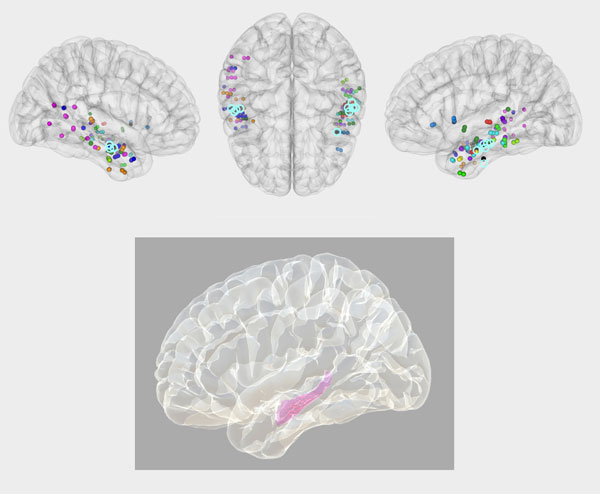 What is the biological basis of this mechanism that allows us to “travel through time”?
What is the biological basis of this mechanism that allows us to “travel through time”?
A study led by Paul Verschure, ICREA Research Professor and head of the Synthetic, Perceptive, Emotive and Cognitive Systems (SPECS) group at Institute for Bioengineering of Catalonia (IBEC), and recently published in the journal Nature Communications, investigates a fundamental question about human memory: for the first time it has been shown that the hippocampus is responsible for coordinating the memory recovery process. A hypothesis that, until now, was only considered theoretically.
The key that made this finding possible lies in the volunteers who participated in the study: epilepsy patients who have intracranial electrode implants in order to monitor their disease. “These patients offered us an extraordinary opportunity. Thanks to their implants, we were able to record the neurophysical activity of the hippocampus and neocortex simultaneously, something which no other human study has achieved before”, Verschure points out.
Virtual reality, a great ally for neuroscience
In addition, the study featured an unusual element: virtual reality. “We wanted to see what happens to memory processes when we manipulate the space where they develop”, explains Daniel Pacheco, postdoctoral researcher in the SPECS group at IBEC and first author of the article. “Our experiment allows us to dissociate the existing relationship between an image and the context which surrounds it.”
The study’s participants had to walk through a virtual maze made up of four rooms, each with twenty images inside. The rooms had different textures on the walls, so that the participants could identify them as different contexts. First, each participant walked through the rooms and observed the images. Next, they walked through a slightly modified version of the maze: the researchers had changed the initial eighty images – some were in a different room and others had been substituted for new images. The participants had to indicate which images they had seen before and which ones they hadn’t.
“Memory involves the conservation of information over time. Therefore, remembering an incident requires the reinstatement of a dynamic state in the brain, an ‘engram’”, Pacheco comments. The so-called memory engrams are traces or patterns in brain activity that originate when we create a new memory. Every time we recall a situation, the engram is reproduced again.
As the experiment reveals, when a person is remembering an incident, it’s the hippocampus that initiates a certain engram and, 500 milliseconds later, the neocortex adds to this activity. “Our study demonstrates that episodic memory is based on coordinated interactions in a hippocampus-neocortex network. These results provide a breakthrough in our understanding of the cerebral mechanism underlying episodic memory and opens up new lines of research related to the orchestration of memory engrams from a more holistic perspective”, Verschure states. The potential future applications of the results of this study are ambitious and varied: from treatment for those who have suffered traumatic episodes, to the optimization of learning.
The Institute for Bioengineering of Catalonia, who led this study, collaborated with Rodrigo Rocamora, director of the Epilepsy Unit of the Hospital del Mar in Barcelona, and Nikolai Axmacher, principle investigator of the Institute of Cognitive Neuroscience at the Ruhr Bochum University (Germany). It is framed within the CDAC project, led by Paul Verschure and financed by an ERC Advanced Grant.
Reference article: Pacheco, D., Sánchez-Fibla, M., Duff, A., Principe, A., Rocamora, R., Zhang, H., Axmacher, N. & Verschure, P.F.M.J (2019). Coordinated representational reinstatement in the human hippocampus and lateral temporal cortex during episodic memory retrieval. Nature Communications, 10, 2255





